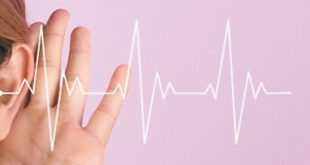By Amy Hoffmann Schenk, RN, BSN, MS Ed, Community Engagement Lead Neuropsychiatric Research Center of SW Florida


Here in our monthly column, we focus on brain health and other brain related issues. So why are we even bringing up heart health? Did you know that heart and brain health are closely related? If you do things that are good for your heart, it will also help your brain! It is a two for one benefit. Let’s dig into the heart/brain connection a bit more.
As the Alzheimer’s Association points out, more evidence is supporting a close link between our hearts and our brains. The brain has a vast network of blood vessels, and with each heartbeat, approximately 20 – 25 % of the blood is pumped to the head. The brain needs this oxygen rich blood to function normally. The average resting heart rate is between 60 and 100 beats per minute. So, the brain is taking between one fifth and one fourth of each heartbeat to stay nourished and to function effectively.
The Association goes on to report that some autopsy studies show that as many as 80 percent of individuals with Alzheimer’s disease also have cardiovascular disease. In addition, the National Institute of Health (NIH) reported in a 2017 article that problems in the cardiovascular system may contribute to the development of dementia. It was also found that diabetes, hypertension, prehypertension and smoking during midlife increased the risk of developing dementia.
In a study originally published in June of 2023, researchers found that cognitive impairment, which includes difficulty remembering, learning new things, concentrating, or decision making is common in individuals with cardiovascular disease. It’s estimated that one in three individuals who present at a cardiology clinic have some degree of cognitive impairment. With the data reflecting the connection between our heart and our brain, we need to focus on keeping both healthy.
The great news is that many things that you can do to keep your heart healthy, also keep your brain healthy! Here are some things that many of us may already know and hopefully practice to keep our hearts healthy. The CDC has some tips for heart health.
Choose healthy food and drink. Eliminating foods high in saturated and trans-fat, as well as linting your salt (sodium) intake are good approaches. Eat foods that are high in fiber, low in saturated fats and trans fats and cholesterol. Processed foods are best avoided. If it comes in a package, it’s likely processed. Fresh fruits, vegetables, fish, nuts and legumes are a better bet.
Stay hydrated by drinking 8 glasses or bottles of water a day. Alcohol should be used in moderation, no more than one drink a day for women and no more than two drinks a day for men. Too much alcohol can lead to high blood pressure among other health issues and high blood pressure is a risk factor for heart disease.
Don’t smoke, or quit smoking. The hazards of smoking have been well researched, and if you don’t smoke, don’t start. Your healthcare practitioner can provide you with information and resources on how to stop smoking.
Manage any other medical conditions with your health care provider. Conditions such as high cholesterol, high blood pressure and diabetes are all risks for heart disease and are not good for your brain. With appropriate intervention, these conditions can be managed effectively, and doing so helps your heart and your brain.
Keeping a healthy weight and getting regular exercise are also ways to love your heart and brain. The US Surgeon General recommends two hours and thirty minutes of moderate intensity exercise a week. That is the equivalent of 30 minutes of exercise, five times a week. Brisk walking, bicycling and other activities that get your heart pumping are ways to get started. Be sure to discuss any new exercise with your health care provider.
By practicing approaches that are good for your heart, you are helping your brain! Add in just a few more activities and you have both your heart and brain covered. Making sure you are getting adequate sleep, staying connected to family and friends, learning new things and protecting your head by wearing a bike helmet and using your seat belt, when added to your heart health strategy, will go a long way to having a well loved heart and brain.
February is also Valentine’s day and we are offering free memory screens in our office on February 12th and 13th at no cost to you. See our ad in this month’s edition, call us at 239-939-7777 to schedule your appointment for your free memory screen. Make it an event, grab your sweetie, do a memory screen and then enjoy some lunch or early dinner to celebrate.
239-939-7777 | nprc-swfl.com
14271 Metropolis Avenue., Fort Myers, FL
References:
Dementia and Heart Health: Are They Related? | Johns Hopkins Medicine
Cognitive Impairment in Patients With Cardiac Disease: Implications for Clinical Practice | Stroke (ahajournals.org)
Heart Health and Brain Health – Public Health Spotlight (alz.org)
Risk factors for heart disease linked to dementia | National Institutes of Health (NIH)
History of the American Heart Association | American Heart
Association
 Southwest Florida's Health and Wellness Magazine Health and Wellness Articles
Southwest Florida's Health and Wellness Magazine Health and Wellness Articles

